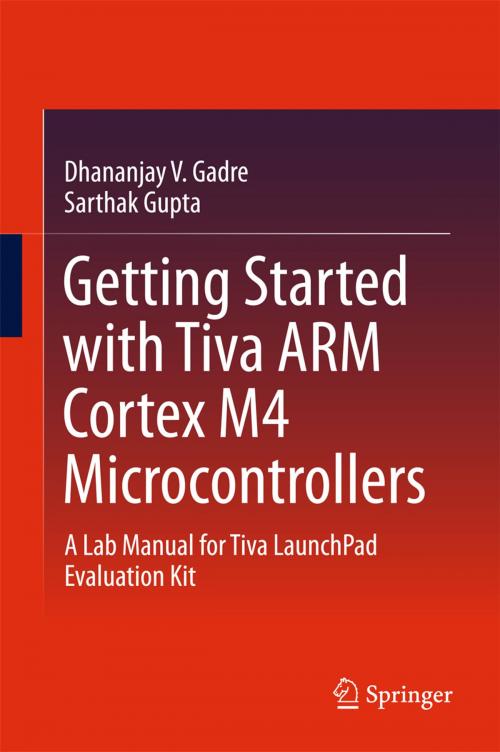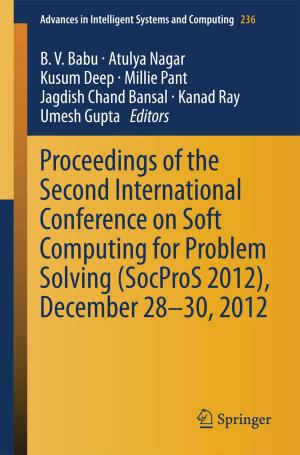Getting Started with Tiva ARM Cortex M4 Microcontrollers
A Lab Manual for Tiva LaunchPad Evaluation Kit
Nonfiction, Science & Nature, Technology, Electronics, Circuits| Author: | Sarthak Gupta, Dhananjay V. Gadre | ISBN: | 9788132237662 |
| Publisher: | Springer India | Publication: | October 16, 2017 |
| Imprint: | Springer | Language: | English |
| Author: | Sarthak Gupta, Dhananjay V. Gadre |
| ISBN: | 9788132237662 |
| Publisher: | Springer India |
| Publication: | October 16, 2017 |
| Imprint: | Springer |
| Language: | English |
The book presents laboratory experiments concerning ARM microcontrollers, and discusses the architecture of the Tiva Cortex-M4 ARM microcontrollers from Texas Instruments, describing various ways of programming them. Given the meager peripherals and sensors available on the kit, the authors describe the design of Padma – a circuit board with a large set of peripherals and sensors that connects to the Tiva Launchpad and exploits the Tiva microcontroller family’s on-chip features. ARM microcontrollers, which are classified as 32-bit devices, are currently the most popular of all microcontrollers. They cover a wide range of applications that extend from traditional 8-bit devices to 32-bit devices. Of the various ARM subfamilies, Cortex-M4 is a middle-level microcontroller that lends itself well to data acquisition and control as well as digital signal manipulation applications. Given the prominence of ARM microcontrollers, it is important that they should be incorporated in academic curriculums. However, there is a lack of up-to-date teaching material – textbooks and comprehensive laboratory manuals. In this book each of the microcontroller’s resources – digital input and output, timers and counters, serial communication channels, analog-to-digital conversion, interrupt structure and power management features – are addressed in a set of more than 70 experiments to help teach a full semester course on these microcontrollers. Beyond these physical interfacing exercises, it describes an inexpensive BoB (break out board) that allows students to learn how to design and build standalone projects, as well a number of illustrative projects.
The book presents laboratory experiments concerning ARM microcontrollers, and discusses the architecture of the Tiva Cortex-M4 ARM microcontrollers from Texas Instruments, describing various ways of programming them. Given the meager peripherals and sensors available on the kit, the authors describe the design of Padma – a circuit board with a large set of peripherals and sensors that connects to the Tiva Launchpad and exploits the Tiva microcontroller family’s on-chip features. ARM microcontrollers, which are classified as 32-bit devices, are currently the most popular of all microcontrollers. They cover a wide range of applications that extend from traditional 8-bit devices to 32-bit devices. Of the various ARM subfamilies, Cortex-M4 is a middle-level microcontroller that lends itself well to data acquisition and control as well as digital signal manipulation applications. Given the prominence of ARM microcontrollers, it is important that they should be incorporated in academic curriculums. However, there is a lack of up-to-date teaching material – textbooks and comprehensive laboratory manuals. In this book each of the microcontroller’s resources – digital input and output, timers and counters, serial communication channels, analog-to-digital conversion, interrupt structure and power management features – are addressed in a set of more than 70 experiments to help teach a full semester course on these microcontrollers. Beyond these physical interfacing exercises, it describes an inexpensive BoB (break out board) that allows students to learn how to design and build standalone projects, as well a number of illustrative projects.















